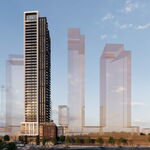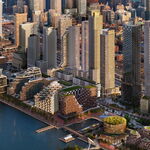"Lovely in theory, but how far and according to whom? Your private may be a public domain to others. Who decides? The courts? Common sense?"
Yes, the Courts decide, along with public opinion, those who are elected to make decisions on our behalf, the Charter and common law. They make decisions on all behalf all the time, they make distinctions between right and wrong all the time and without these bodies and institutions, our society would not be able to function (we would be always brush away good ideas with "well, who decides." We give others the right to decide so we can get things done, like catch and punish criminals. We decide what things are right and wrong every day - it is called laws. And there are privacy laws too. And those laws are layered along with the Charter and common law and public opinion.
One simply can't make an argument against doing something with "well, who decides?" because with such logic, you would not be able to do anything as a society ("you can't make a law against stealing. Who decide what is stealing? Little kids playing with each other in a house could be charged with stealing when one takes the other's toys during play.").




